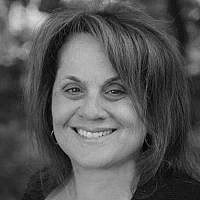By Tom Watson and Audrey Levitin
As consultants in a development consulting firm, we understand the profound challenges nonprofit organizations face during periods of political and economic uncertainty. The incoming Trump administration in 2025 brings with it a distinct set of challenges and potential threats to the nonprofit sector, including shifts in federal funding priorities, heightened scrutiny to the sector, and potential policy changes that could affect everything from tax-exempt status to charitable deductions.
Consider these recent news items:
Nonprofit groups are in the Trump administration’s crosshairs – “This all comes at a precarious moment for nonprofit organizations, given their robustness and integration in our civic framework. Labor unions, universities, museums, membership organizations and tenant advocates serve a significant public service — and under the next Trump administration are likely to face threats to their funding streams.”
Nonprofits Brace for Big Changes Under Trump Administration – “The 2025 legislative session is filled with peril for the nonprofit world — including threats to foundations, big endowments, donor-advised funds, and charities with close counterparts in the for-profit sector, such as hospitals.”
Elon Musk calls homelessness a ‘lie’ and ‘propaganda’ — and Trump is listening – “Musk — who has funneled more than $250 million into Donald Trump’s presidential campaign — is now directing lawmakers and the White House to make drastic, potentially devastating cuts to federal agencies that support millions of vulnerable Americans, including thousands of people experiencing homelessness.”
These stories are legion, and it’s clear the nonprofit sector is already a target for the radical changes envisaged by the new administration for American civil society. To be blunt: the landscape has changed dramatically, and very negatively for organizations who operate within the bounds of a liberal society that prizes collaboration and the effective use of public and private resources. No serious nonprofit leader can ignore this sea change, and the threats to both funding and the social contract. Our work consists of helping both staff and voluntary leadership to navigate challenges and opportunities, and build stronger organizations that help more people. We are always happy to have a conversation with nonprofit executives about what’s working – and what’s not.
To navigate this landscape effectively, nonprofit leaders must adopt proactive strategies in fundraising, strategic planning, and communications. Below, we outline several key recommendations to help your organization thrive despite these challenges
Fundraising: Diversify and Mobilize
The shifting priorities of the new administration may lead to cuts in federal funding for programs that many organizations rely on – in education, direct services, healthcare, immigrant, justice work and many more. Now, more than ever, it is critical to diversify your revenue streams. Start by assessing your donor base and identifying opportunities to broaden it. This might include engaging with younger donors through digital platforms, identifying and engaging major donors who share your mission, or seeking grants from private foundations that remain aligned with your cause.
Additionally, focus on cultivating recurring donations from grassroots supporters. Small, consistent contributions can provide stability in uncertain times. Use technology to automate and personalize donor engagement, and ensuring that supporters feel valued and informed about the impact of their contributions.
Finally, consider launching emergency or contingency fundraising campaigns tied to specific threats posed by policy changes. Demonstrate how your organization is a leader in addressing urgent challenges, making it clear how donor dollars will directly mitigate harm.
Strategic Planning: Adapt and Strengthen
Strategic planning is essential to weather the uncertainties of this administration. Begin by conducting a comprehensive risk assessment to identify vulnerabilities related to potential policy shifts. From there, develop contingency plans that include alternative funding sources, operational adjustments, and partnerships.
Invest in capacity-building initiatives that enhance organizational resilience. For example, prioritize cross-training staff to ensure operational continuity, and explore strategic alliances with other nonprofits to share resources and amplify collective impact. Collaboration can be a powerful tool to address systemic challenges and demonstrate unity in the face of external threats.
Another key aspect of strategic planning is advocacy. Equip your board and leadership team with the tools to engage in policy advocacy at the local, state and federal levels. Building relationships with policymakers and aligning with coalitions that support your mission will help ensure that your voice is heard during critical debates.
Communications: Craft a Narrative of Urgency
The political climate may bring increased scrutiny of nonprofit operations and agendas. It is imperative to control your narrative and communicate your impact clearly and consistently – and to stress urgency. Transparency is also important: ensure that your organization’s financials, outcomes, and stories of success are readily accessible to the public. This will build trust and preempt potential criticism.
Leverage your communications strategy to emphasize the human stories behind your work. Personal testimonials from beneficiaries, volunteers, and staff can underscore the real-world impact of your mission and resonate with donors and stakeholders.
Additionally, prepare to counter misinformation or attacks that may arise. Develop a crisis communications plan that outlines clear protocols for addressing negative publicity or political backlash. Empower a designated spokesperson to respond swiftly and effectively while staying aligned with your organization’s values.
Leadership in Difficult Times
The challenges posed by the incoming Trump administration require nonprofit leaders to demonstrate resilience, adaptability, and proactive vision. By diversifying fundraising efforts, strengthening strategic plans, and crafting compelling communications, your organization can not only survive but thrive.
Remember, in times of uncertainty, the nonprofit sector has historically been a beacon of hope and innovation. Your work matters now more than ever! By staying true to your mission and embracing change, you can continue to make a meaningful impact in the communities you serve.



